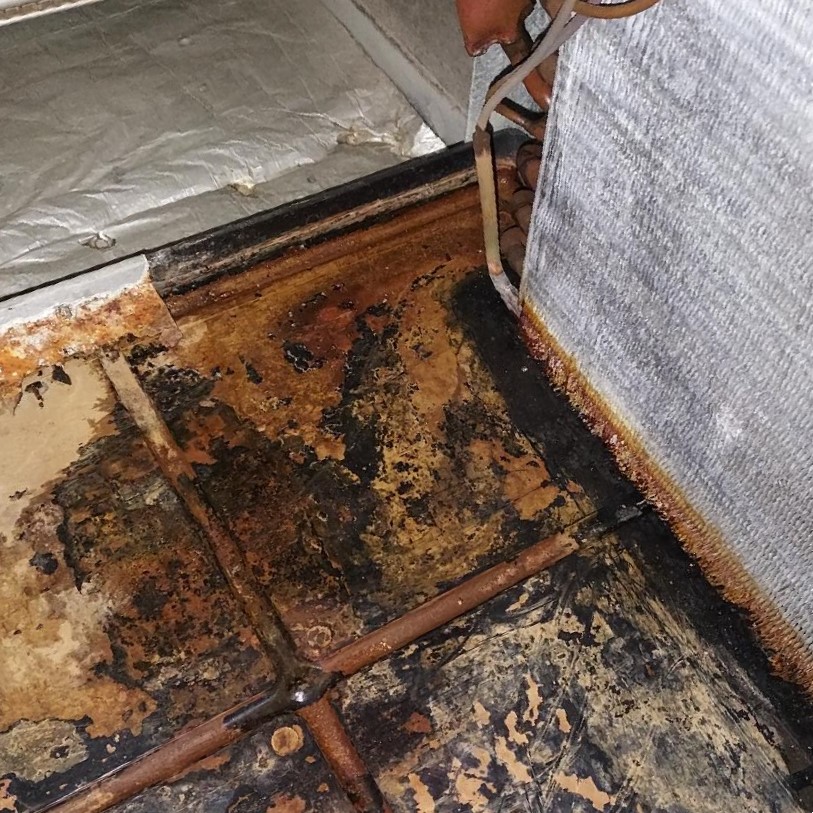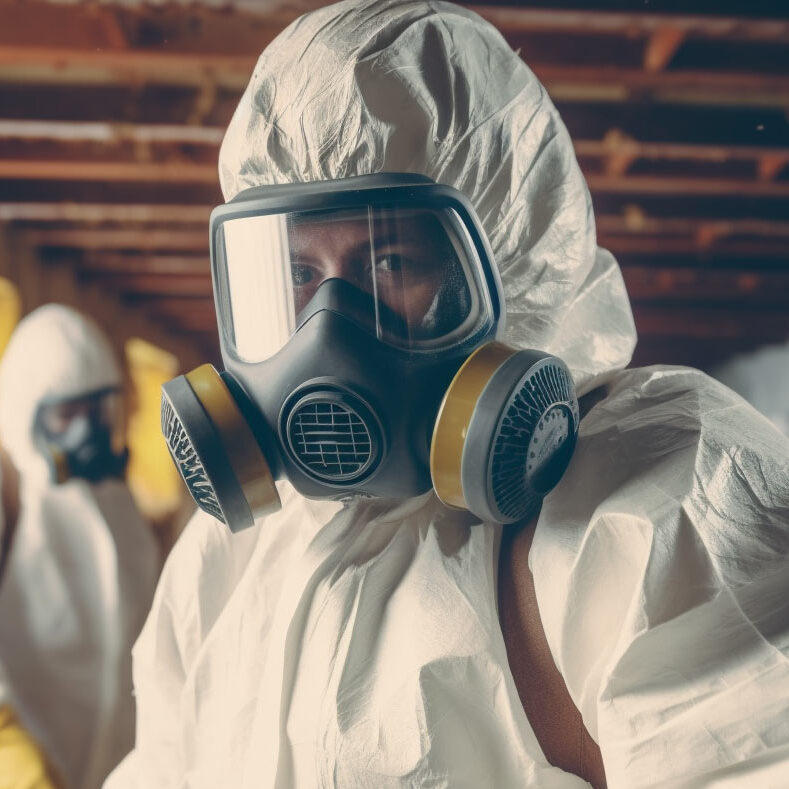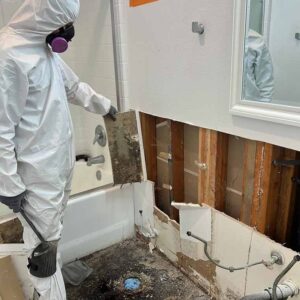Your HVAC system plays a critical role in keeping your home comfortable, but it can also be the perfect environment for mold growth if not properly maintained. Condensation buildup inside the air handler and plenum can create ideal conditions for mold to thrive, potentially leading to poor air quality and health issues.
At RCR Environmental, we understand the dangers of mold in HVAC systems and how it affects your indoor air quality. In this post, we’ll dive into how condensation inside your HVAC system can lead to mold growth and how air quality testing can help identify hidden mold issues, especially if you’ve been feeling ill and can’t pinpoint the cause.
How Condensation in Your HVAC System Leads to Mold Growth
Condensation inside your HVAC system is a common issue, especially in humid climates or during the warmer months when your air conditioning runs frequently. When warm, moist air passes through the cooling coils of the air handler, it cools down, and condensation forms as a byproduct. Ideally, this moisture should drain away properly, but when condensation accumulates inside the air handler or plenum, it creates an environment where mold can easily grow.
Here’s how it happens:
1. Moisture Accumulation
The air handler and plenum are prime areas for condensation to collect. When the system is operating, the cold coils cool down the warm air, causing water vapor to condense. If the drainage system is blocked, or if moisture isn’t adequately removed, it will accumulate inside these components.
2. Organic Material in the HVAC System
Dust, dirt, and other organic debris often find their way into your HVAC system, collecting on the coils and inside the plenum. Mold feeds on these materials, so when moisture is present, the combination of condensation and organic matter provides the ideal conditions for mold growth.
3. Mold Spreads Through Air Circulation
Once mold starts growing inside your HVAC system, it can easily spread. As the system circulates air through your home, mold spores are carried into every room, impacting the overall air quality. You might not see visible mold, but you could experience symptoms like allergies, respiratory issues, or fatigue, all of which are common when mold is present in your living environment.
The Impact of Mold on Air Quality
Mold growth inside your HVAC system can significantly degrade the air quality in your home. As mold spores are dispersed through the vents, they contaminate the air you breathe, leading to:
- Respiratory Problems: Breathing in mold spores can trigger asthma, bronchitis, and other respiratory conditions.
- Allergic Reactions: Symptoms like sneezing, coughing, and itchy eyes are common allergic reactions to mold in the air.
- Fatigue and Illness: Prolonged exposure to mold-contaminated air can lead to chronic fatigue, headaches, and even more severe health problems.
How Air Quality Testing Can Identify Hidden Mold
If you’ve been feeling unwell and can’t identify the cause, or if you suspect mold in your HVAC system, air quality testing is a crucial step in detecting hidden mold issues.
Here’s how it works:
1. Air Sampling
Certified professionals collect air samples from different areas of your home, particularly near your HVAC vents. These samples are analyzed for mold spores and other airborne contaminants that may be affecting your health.
2. Mold Spore Identification
Air quality testing can identify not only the presence of mold spores but also the type of mold growing in your HVAC system. Some mold types are more dangerous than others, so understanding the specific threat can help determine the severity of the problem.
3. Detection of Other Contaminants
In addition to mold, air quality testing can detect other harmful substances in your HVAC system, such as dust, allergens, and volatile organic compounds (VOCs). This comprehensive analysis helps provide a clear picture of your indoor air quality and whether further remediation is needed.
Preventing Mold Growth in Your HVAC System
Preventing mold growth in your HVAC system starts with managing condensation and keeping your system clean. Here are a few key steps to reduce the risk:
- Regular Maintenance: Schedule routine HVAC maintenance to ensure proper drainage, clean filters, and inspect coils for buildup.
- Improve Ventilation: Proper airflow reduces moisture accumulation. Ensure your HVAC system is ventilating efficiently to minimize condensation.
- Dehumidifiers: Installing dehumidifiers in high-humidity areas can help control moisture levels, reducing the risk of mold growth inside your system.
How RCR Environmental Can Help
At RCR Environmental, we specialize in HVAC mold remediation and air quality testing. Our team of certified professionals can assess your HVAC system, conduct air quality tests, and develop a tailored remediation plan to eliminate mold and improve your indoor air quality.
We understand how critical clean air is for your health and well-being, especially when mold is involved. Our thorough approach ensures that mold is removed from your HVAC system and steps are taken to prevent future growth.
Protect Your Air Quality Today
If you suspect mold in your HVAC system or have been feeling ill without explanation, contact RCR Environmental for professional air quality testing and mold remediation. Don’t let hidden mold affect your health—take action today.
CALL to schedule an inspection or learn more about our services.







